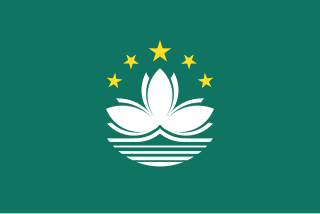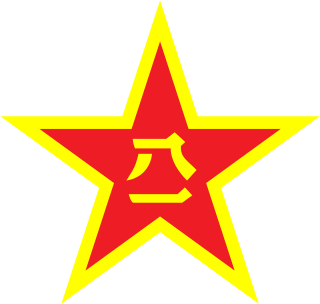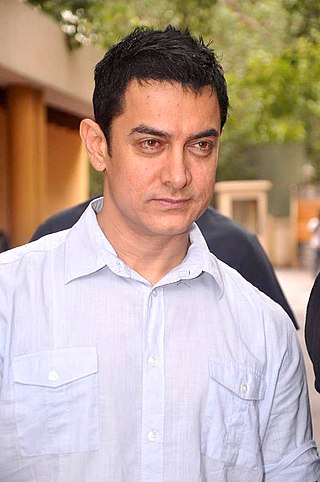
China, officially the People's Republic of China (PRC), is a country in East Asia. It is the world's second-most-populous country, with a population exceeding 1.4 billion. China spans the equivalent of five time zones and borders fourteen countries by land, tied with Russia as having the most of any country in the world. With an area of nearly 9.6 million square kilometers (3,700,000 sq mi), it is the world's third-largest country by total land area. The country is divided into 22 provinces, five autonomous regions, four municipalities, and two semi-autonomous special administrative regions. The national capital is Beijing, and the most populous city and largest financial center is Shanghai.

Guangzhou, also known as Canton, is the capital and largest city of Guangdong province in southern China. Located on the Pearl River about 120 km (75 mi) north-northwest of Hong Kong and 145 km (90 mi) north of Macau, Guangzhou has a history of over 2,200 years and was a major terminus of the maritime Silk Road; it continues to serve as a major port and transportation hub as well as being one of China's three largest cities. For a long time it was the only Chinese port accessible to most foreign traders. Guangzhou was captured by the British during the First Opium War and no longer enjoyed a monopoly after the war; consequently it lost trade to other ports such as Hong Kong and Shanghai, but continued to serve as a major transshipment port. Due to a high urban population and large volumes of port traffic, Guangzhou is classified as a Large-Port Megacity, the largest type of port city in the world. Due to worldwide travel restrictions at the beginning of the COVID-19 pandemic, Guangzhou Baiyun International Airport, the major airport of Guangzhou, briefly became the world's busiest airport by passenger traffic in 2020.

Hong Kong, officially the Hong Kong Special Administrative Region of the People's Republic of China, is a city and a special administrative region in China. With 7.4 million residents of various nationalities in a 1,104-square-kilometre (426 sq mi) territory, Hong Kong is one of the most densely populated territories in the world.

Macau or Macao, officially the Macao Special Administrative Region of the People's Republic of China (MSAR), is a city and special administrative region of China in the western Pearl River Delta by the South China Sea. With a population of about 680,000 and an area of 32.9 km2 (12.7 sq mi), it is the most densely populated region in the world.

Taiwan, officially the Republic of China (ROC), is a country in East Asia. It is located at the junction of the East and South China Seas in the northwestern Pacific Ocean, with the People's Republic of China (PRC) to the northwest, Japan to the northeast, and the Philippines to the south. The territories controlled by the ROC consist of 168 islands with a combined area of 36,193 square kilometres. The main island of Taiwan, also known as Formosa, has an area of 35,808 square kilometres, with mountain ranges dominating the eastern two-thirds and plains in the western third, where its highly urbanized population is concentrated. The capital, Taipei, forms along with New Taipei City and Keelung the largest metropolitan area in Taiwan. With around 23.9 million inhabitants, Taiwan is among the most densely populated countries.

Shanghai is one of the four direct-administered municipalities of the People's Republic of China (PRC). The city is located on the southern estuary of the Yangtze River, with the Huangpu River flowing through it. The population of the city proper is the third greatest in the world, with 24.89 million inhabitants in 2021, while the urban area is the most populous in China, with 39.3 million residents. As of 2018, the Greater Shanghai metropolitan area was estimated to produce a gross metropolitan product (nominal) of nearly 9.1 trillion RMB. Shanghai is one of the world's major centers for finance, business and economics, research, science and technology, manufacturing, transportation, tourism, and culture, and the Port of Shanghai is the world's busiest container port.

The member states of the United Nations comprise 193 sovereign states. The United Nations (UN) is the world's largest intergovernmental organization. All members have equal representation in the UN General Assembly.

The Asian Games, also known as Asiad, is a continental multi-sport event held every fourth year among athletes from all over Asia. The Games were regulated by the Asian Games Federation (AGF) from the first Games in New Delhi, India in 1951, until the 1978 Games. Since the 1982 Games, they have been organized by the Olympic Council of Asia (OCA), after the breakup of the Asian Games Federation. The Games are recognized by the International Olympic Committee (IOC) and are described as the second largest multi-sport event after the Olympic Games.

The People's Liberation Army (PLA) is the armed wing of the Chinese Communist Party (CCP) and the principal military force of the People's Republic of China. The PLA consists of five service branches: the Ground Force, Navy, Air Force, Rocket Force, and Strategic Support Force. It is under the leadership of the Central Military Commission (CMC) with its chairman as commander-in-chief.

The renminbi is the official currency of the People's Republic of China. It is the 5th most traded currency as of April 2022.

The Second Sino-Japanese War or the Second China–Japan War was an armed conflict fought between the Republic of China and the Empire of Japan from 1937 to 1945, as part of World War II. This total war between China and the Empire of Japan is often regarded as the beginning of World War II in Asia, although some scholars consider the European War and the Pacific War to be entirely separate, albeit concurrent. It was the largest Asian war in the 20th century and has been described as "the Asian Holocaust", in reference to the scale of Imperial Japan's war crimes against Chinese civilians. After the Japanese attacks on Malaya and Pearl Harbor in 1941, the war merged with other conflicts which are generally categorized under the China Burma India Theater of World War II.

Mohammed Aamir Hussain Khan is an Indian actor who works in Hindi films. Referred to in the media as "Mr. Perfectionist", through his career spanning over 30 years, Khan has established himself as one of the most notable actors of Indian cinema. Khan is the recipient of numerous awards, including nine Filmfare Awards, four National Film Awards, and an AACTA Award, with one of his film productions also receiving an Academy Award nomination. He was honoured by the Government of India with the Padma Shri in 2003 and the Padma Bhushan in 2010, and received an honorary title from the Government of China in 2017.

Xi Jinping is a Chinese politician who has been serving as the general secretary of the Chinese Communist Party (CCP) and chairman of the Central Military Commission (CMC), and thus as the paramount leader of China, since 2012. Xi has also served as the president of the People's Republic of China (PRC) since 2013. He belongs to the fifth generation of Chinese leadership.

Beijing, alternatively romanized as Peking, is the capital of the People's Republic of China. With over 21 million residents, Beijing is the world's most populous national capital city as well as China's second largest city after Shanghai. It is located in Northern China, and is governed as a municipality under the direct administration of the State Council with 16 urban, suburban, and rural districts. Beijing is mostly surrounded by Hebei Province with the exception of neighboring Tianjin to the southeast; together, the three divisions form the Jingjinji megalopolis and the national capital region of China.

The national flag of the People's Republic of China, also known as the Five-star Red Flag, is a Chinese red field with five golden stars charged at the canton. The design features one large star, with four smaller stars in an arc set off towards the fly. It has been the national flag of China since the foundation of the People's Republic of China on 1 October 1949. The flag was designed by Zeng Liansong.

Antony John Blinken is an American lawyer and diplomat. Since January 26, 2021, he has served as the 71st United States secretary of state. He previously served as deputy national security advisor from 2013 to 2015 and deputy secretary of state from 2015 to 2017 under President Barack Obama. Blinken was previously national security advisor to then-vice president Joe Biden from 2009 to 2013.

BRICS is a grouping of Brazil, Russia, India, China, and South Africa formed by the 2010 addition of South Africa to the predecessor BRIC. The original acronym "BRIC", or "the BRICs", was coined in 2001 by Goldman Sachs economist Jim O'Neill to describe fast-growing economies that he predicted would collectively dominate the global economy by 2050.

The Belt and Road Initiative, known within China as the One Belt One Road or OBOR/1B1R for short, is a global infrastructure development strategy adopted by the Chinese government in 2013 to invest in more than 150 countries and international organizations. It is considered a centerpiece of the Chinese leader Xi Jinping's foreign policy. The BRI forms a central component of Xi's "Major Country Diplomacy" strategy, which calls for China to assume a greater leadership role for global affairs in accordance with its rising power and status. It has been compared to the American Marshall Plan. As of August 2023, 155 countries were listed as having signed up to the BRI. The participating countries include almost 75% of the world's population and account for more than half of the world's GDP.

TikTok, whose mainland Chinese counterpart is Douyin, is a short-form video hosting service owned by ByteDance. It hosts user-submitted videos, which can range in duration from 3 seconds to 10 minutes.

The Chinese government has committed a series of ongoing human rights abuses against Uyghurs and other ethnic and religious minorities in Xinjiang that is often characterized as genocide. Beginning in 2014, the Chinese government, under the administration of Chinese Communist Party (CCP) General Secretary Xi Jinping, incarcerated more than an estimated one million Turkic Muslims without any legal process in internment camps. Operations from 2016 to 2021 were led by Xinjiang CCP Secretary Chen Quanguo, who dramatically increased the scale and scope of the camps. It is the largest-scale detention of ethnic and religious minorities since World War II. Experts estimate that, since 2017, some sixteen thousand mosques have been razed or damaged, and hundreds of thousands of children have been forcibly separated from their parents and sent to boarding schools.


















